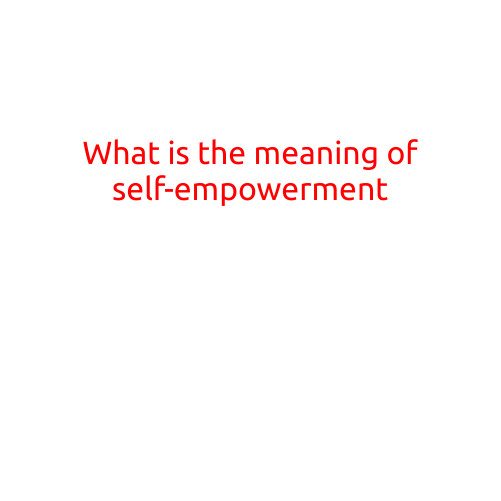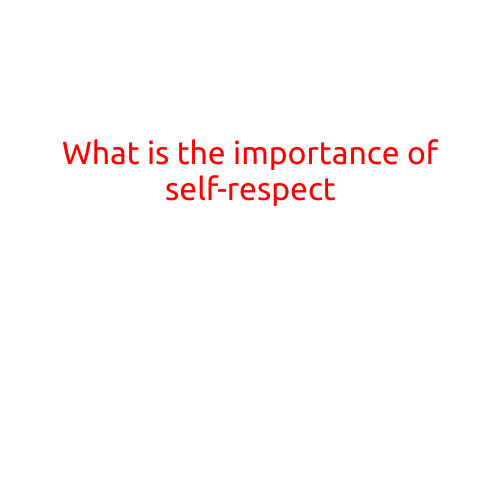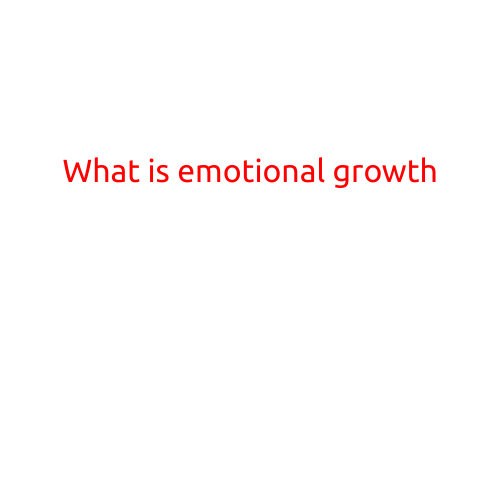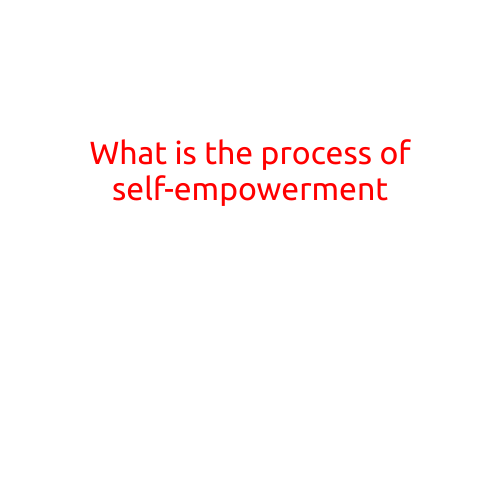
What is the Meaning of Self-Empowerment?
In today’s fast-paced and often chaotic world, the concept of self-empowerment has become a popular buzzword. But what does it really mean to be self-empowered? Is it just a fancy phrase used to describe someone who is confident and independent? Not quite. Self-empowerment is a deeper and more profound concept that goes beyond just feeling good about oneself.
At its core, self-empowerment is about taking control of one’s life and making choices that align with one’s values, goals, and aspirations. It’s about recognizing one’s own strengths, weaknesses, and limitations, and using that awareness to make informed decisions that benefit oneself and others.
Self-empowerment is not just about achieving success or fame; it’s about living a purposeful and meaningful life. It’s about being true to oneself, setting boundaries, and asserting one’s autonomy. It’s about developing a sense of self-worth and self-respect that is not dependent on external validation.
So, what are some key elements of self-empowerment? Here are a few:
- Self-awareness: Understanding one’s own thoughts, feelings, values, and motivations is essential to self-empowerment. This involves being honest with oneself, acknowledging one’s flaws, and developing a sense of compassion and self-acceptance.
- Conscious decision-making: Self-empowered individuals make choices that align with their values and goals, rather than simply reacting to external circumstances. They take time to reflect, weigh the pros and cons, and make intentional decisions.
- Assertiveness: Self-empowered individuals are comfortable asserting their needs, wants, and boundaries. They communicate effectively, set limits, and stand up for themselves without apology.
- Resilience: Self-empowered individuals bounce back from setbacks, failures, and criticism. They develop coping strategies, practice self-care, and cultivate a growth mindset.
- Accountability: Self-empowered individuals take ownership of their actions, words, and consequences. They acknowledge their mistakes, learn from them, and make amends when necessary.
So, how can you cultivate self-empowerment in your own life? Here are a few tips:
- Practice self-reflection: Take time to journal, meditate, or engage in other activities that help you tune in to your thoughts, feelings, and values.
- Set boundaries: Learn to say no, set limits, and prioritize your own needs and desires.
- Develop a growth mindset: See challenges and failures as opportunities for growth, learning, and improvement.
- Seek support: Surround yourself with people who support and encourage you, and don’t be afraid to ask for help when you need it.
- Practice self-care: Prioritize your physical, emotional, and mental well-being by engaging in activities that nourish and rejuvenate you.
In conclusion, self-empowerment is not just a feel-good phrase or a fleeting trend. It’s a conscious choice to take control of one’s life, to prioritize one’s own well-being, and to live a purposeful and meaningful life. By understanding the key elements of self-empowerment and incorporating them into your daily life, you can cultivate a sense of confidence, autonomy, and self-worth that will serve you well in all areas of your life.





